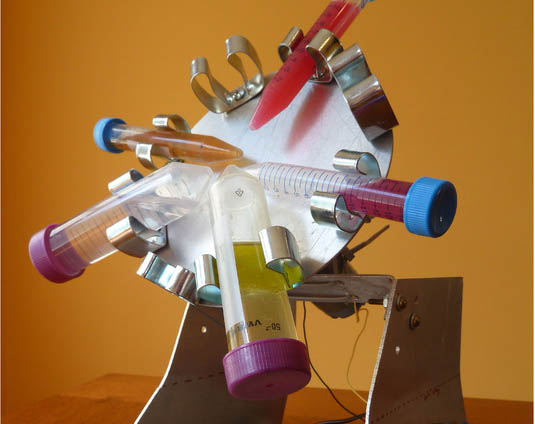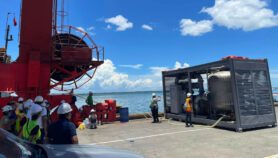Send to a friend
The details you provide on this page will not be used to send unsolicited email, and will not be sold to a 3rd party. See privacy policy.
[SANTIAGO] Hard-up laboratories in developing countries may soon be able to build their own research equipment by joining Tekla Labs, an online community set up by scientists at the University of California, Berkeley, United States.
Tekla Labs aims to link researchers requiring lab equipment with science and engineering graduate students or other scientists who already build their own kit.
As well as helping with construction and maintenance, the network aims to publish easy-to-follow design documents and protocols to verify equipment quality, as well as to carry out surveys on equipment needs.
"In surveying a number of labs throughout Latin America, we found that many do not have the equipment that is common in the US or Europe," Bertram Koelsch, a co-founder of Tekla Labs, tells SciDev.Net.
"Daunted by the prohibitively high import costs, many resort to donations but this is limited because demand is much greater than supply and if the equipment breaks, they cannot get it repaired," he adds.
The survey, carried out jointly with the Sustainable Science Institute, covered 20 research labs across Latin America, with a focus on Central America. It asked about what lab equipment was in place, what was needed and whether the researchers could build it in a workshop if they had the instructions.
“Labs in Latin America and other countries are already building equipment ranging from standard items to sophisticated speciality equipment.”
Lina Nilsson, Tekla Labs
Only 20 per cent said they had a microscope for viewing cells, 69 per cent needed one and nearly as many would use one if built in a local workshop.
More than 90 per cent said they needed a rotator (used to gently agitate biological samples for long periods of time), and all said they would build it; 83 per cent reported they would build their own water bath for heating samples.
"Other equipment that most people want that can be built DIY [do-it-yourself] includes incubators, hot plates with a magnetic stirrer, centrifuges, sterilisation equipment and tissue culture hoods," Lina Nilsson, also a Tekla Labs co-founder, tells SciDev.Net.
"Labs in Latin America and other countries are already building equipment ranging from standard items to sophisticated speciality equipment," she adds.
Nilsson says that two of her favourite examples are in Bolivia. These are a discarded record player that now works as a rotator unit used for de-staining DNA gels, and a kitchen blender repurposed to work as a tabletop centrifuge.
Tekla Labs is now creating a library of DIY guides with detailed instructions for constructing high-quality lab equipment. The first are for a magnetic stirrer, used to make homogeneous liquid mixtures such as buffer solutions or growth media for bacteria, and a rotator.
"A magnetic stirrer built with parts from a hardware store costs roughly US$25 against US$250-500 for the commercial version, while a US$500 rotator becomes US$25-30," says Nilsson.
Johann Osma, a Tekla Labs collaborator at Los Andes University in Colombia, tells SciDev.Net that the initiative is "a wonderful idea" that can help research groups equip their labs despite having only scarce resources.
He adds that Tekla Labs and its users in Latin America should work as a team, so the US side can not only provide the technical information but also become more aware of the difficulties labs face in obtaining the parts needed to build the equipment.
"I think only a small number of research groups will build their own equipment unless Tekla Labs starts providing user-friendly kits targeting students rather than researchers," he adds.
Tekla Labs is running a design competition for equipment that Latin American and African researchers have said they need. Designers can send ideas until 16 December.














